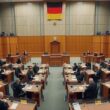Austria has been at the center of the debate on the integration of refugees and migrants for years. While the country serves as a destination for many refugees fleeing war, political persecution, and poverty, the long-term challenges of integration into the labor market and society should not be underestimated.
Besides the question of how well these people can be integrated into Austrian society, there are growing concerns about crime and the impact on unemployment.
One of the biggest problems faced by refugees in Austria is the integration into the labor market. Although the government offers various programs to support migrants and refugees in their labor market integration, the unemployment rate among refugees remains relatively high. According to data from the Austrian Statistics, the unemployment rate among asylum seekers and subsidiary protected persons is significantly higher than in the Austrian population.
Many refugees struggle to get a foothold in the Austrian labor market. A major reason for this is the often low level of education, particularly among people from war zones or unstable regions.
The language barrier also presents a significant hurdle, as German language skills are a prerequisite for many jobs. In many cases, refugees are initially dependent on social benefits to secure their livelihood. Moreover, the recognition of qualifications obtained abroad often proves to be a challenge.
A higher unemployment rate among refugees puts additional pressure on the social system, which is increasingly confronted with the challenge of meeting the demand for social assistance and unemployment benefits. This is particularly problematic in times of economic uncertainty, when the Austrian population itself is struggling with a stagnant labor market.
Crime and security concerns
Another topic that is frequently discussed in the context of the refugee crisis in Austria is crime. While most refugees come to Austria to build a better life, there are always reports that shape public perception.
In particular, in urban areas where refugees often live in larger communities, the crime rate is higher, including theft, bodily harm, and even sexual offenses.
There are always reports of “petty crime” in refugee homes and asylum seeker accommodations, which fuels fears and mistrust of the refugee community in the population. The police and security authorities are increasingly struggling to control the situation in the accommodations and areas inhabited by refugees.
The issue of crime among refugees is evaluated differently by various political factions. While one side emphasizes that crime is not a specific characteristic of refugees and that many crimes can be attributed to precarious living conditions and integration problems, the other side uses such incidents to highlight the security situation and criticize the government’s open-door policy. Refugee crime is used as an argument against further immigration and as a warning about the risks of a too-liberal migration policy.
Besides the practical and economic challenges, the refugee crisis has also caused significant social tensions in Austria.
On one side, there are those who advocate for an open, multicultural society that fights for the rights and integration of refugees. They argue that migration is an enrichment for the society and that refugees should be given the chance to integrate into the Austrian system.
On the other side, there are more and more people who believe that the refugee wave has negative effects on the society. Critics point to the large number of refugees and migrants living in Austria and the difficulties that come with it. They emphasize the risks to social cohesion and the burden on the social system.
In the public debate on the refugee problem, themes like “Islamism” and “Parallel Societies” have been repeatedly mentioned, leading to a strong emotional discussion.
Political parties in Austria, particularly the right-wing FPÖ, have repeatedly taken the issue of migration and integration as a central election theme and demand a more restrictive asylum policy. Several initiatives and legislative changes have been proposed in the parliament to slow down the influx of refugees and tighten the requirements for asylum seekers.
The refugee problem in Austria is a long-term challenge that has economic, security, and social implications. While refugees can make a significant contribution to the society, the integration into the labor market and society is a difficult and often long-term process. The issue of crime and social tensions remains a sensitive topic that always sparks political discussions.
The government is faced with the task of developing a balanced and pragmatic integration concept that gives refugees the chance to integrate into the society and meets the needs of the Austrian population.
Only through a comprehensive and coordinated policy that addresses both integration and security aspects will it be possible to overcome the refugee problem in Austria.





